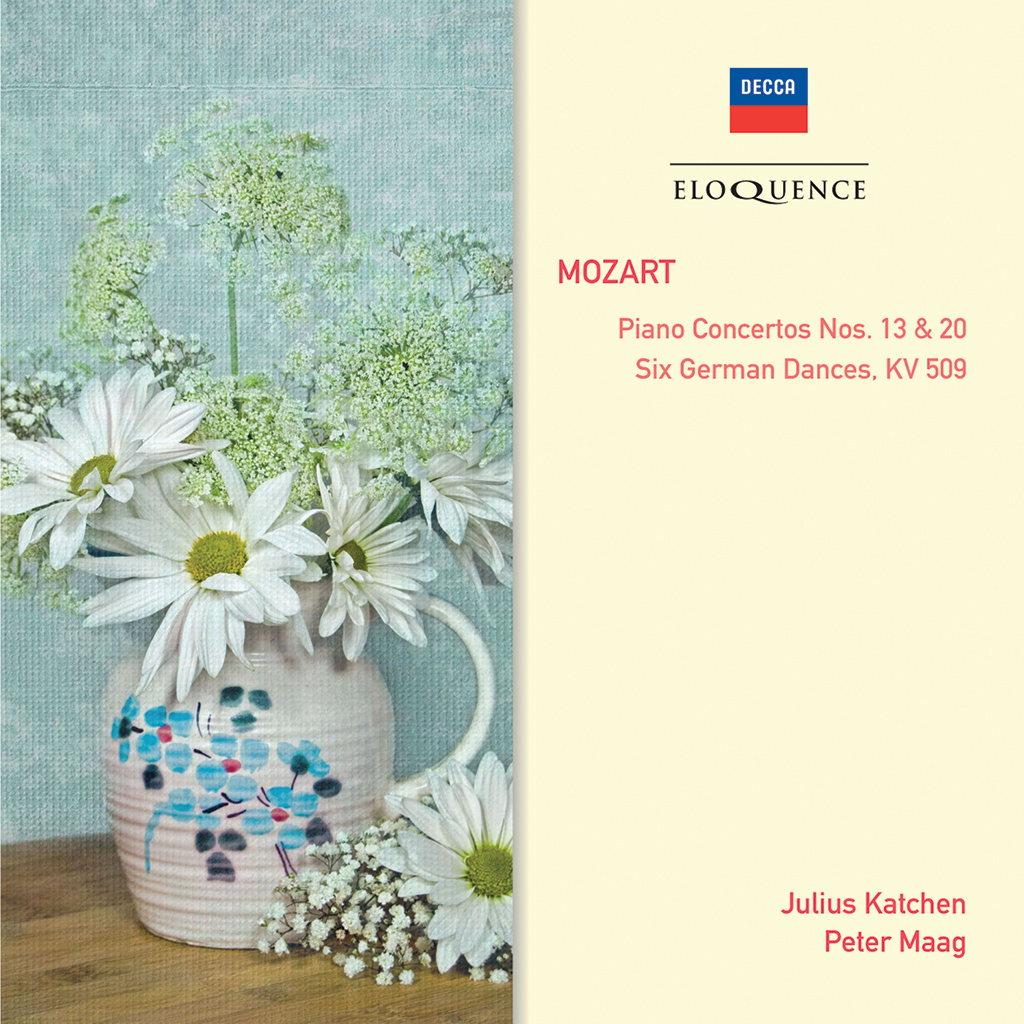
Julius Katchen recorded two Mozart piano concertos with Peter Maag and they both appear on this CD, together with the Six German Dances, KV 509 – ‘a magnificent example of the power of a genuinely charismatic conductor’ as Tully Potter notes in his liner notes. Katchen first entered Decca’s London studios in 1947 and was still heavily involved in a major Brahms project when he died of cancer in Paris, the city that had long been his home. He made his debut at the age of ten, playing the Mozart
D minor concerto. Like Peter Maag, he was a philosopher, having completed a four-year course at Haverford College in three years. A musician of immense warmth – as witnessed in these Mozart readings – his colossal technique was always understated.
Unfairly neglected, Mozart’s C major Concerto, KV 415 is a gem. At the time of this recording (1955), it was only the third to appear. Cor de Groot’s performance had the honour of being the first LP version and this was preceded by Artur Balsam’s 78rpm recording. It was to be another five years before the concerto was to be recorded again – in 1960 by Clara Haskil. The D minor Concerto is Mozart’s most Beethovenian, and indeed it is Beethoven’s cadenzas that Katchen uses for his recording. (For the C major concerto, even though Mozart’s cadenzas survive, Katchen does not play them, using one of his own in the opening movement.) Word has it that Mozart wrote his delightful set of six German Dances, KV 509 in one hour during an enjoyable trip to Prague in 1787. Unfathomably neglected, they were taped for this recording in Kingsway Hall in January 1959 and make their first appearance here since their initial release on a ten-inch LP.
MOZART
Piano Concerto No. 13 in C major, KV415
Piano Concerto No. 20 in D minor, KV466
Julius Katchen, piano
New Symphony Orchestra of London
Peter Maag
Six German Dances, KV 509*
London Symphony Orchestra
Peter Maag
*FIRST INTERNATIONAL RELEASE ON CD
Recording Producers: John Culshaw (KV 415, KV 466); Erik Smith (KV 509)
Balance Engineer: Arthur Lilley (KV 415, KV 466); Kenneth Wilkinson (KV 509)
Recording Locations: Decca Studios, West Hampstead, London, UK, August 1955 (KV 415, KV 466); Kingsway Hall, London, UK, January 1959 (KV 509)
‘Katchen’s Mozart is a joy, in which the musical dialogue, whether within the solo part or when it is pitted against the orchestra, provides a constant effervescent narrative.’ Gramophone
‘The recording is clear; the orchestral playing adept’ (Concertos) Gramophone
